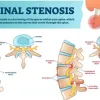Managing Inflammation and Back Pain: Discover the Key to a Pain-Free Life with Fitpaa!
Back pain is a common health issue that affects a significant number of people, including the Indian population. There are various factors that can contribute to back pain, and one such factor is inflammation. Inflammation can play a significant role in the development and persistence of back pain. In this article, we will explore the relationship between inflammation and back pain, understanding how inflammation occurs, its effects on the back, and ways to manage it effectively.
Understanding Inflammation
Inflammation is a natural response of the body to injury, infection, or irritation. It is a protective mechanism that helps the body in healing damaged tissues. When an injury or damage occurs in the back, the immune system triggers an inflammatory response. This response involves the release of various chemicals and immune cells to the affected area.
Inflammatory Causes of Back Pain
- Muscle Strain: Inflammation can occur in the muscles of the back due to overuse or injury. This can lead to muscle spasms and pain.
- Joint Inflammation: Conditions like osteoarthritis and rheumatoid arthritis can cause inflammation in the joints of the back, leading to pain and stiffness.
- Disc Degeneration: Inflammation can contribute to the degeneration of the intervertebral discs in the spine. This can cause disc herniation and nerve compression, resulting in back pain.
- Inflammatory Diseases: Inflammatory diseases like ankylosing spondylitis and inflammatory bowel disease can also affect the back, leading to chronic inflammation and pain.
Effects of Inflammation on the Back
Inflammation can have several effects on the back, contributing to the development and persistence of back pain. These effects include:
- Swelling: Inflammation can cause swelling and increased fluid accumulation in the affected area, leading to increased pressure and discomfort.
- Nerve Irritation: Inflammation can irritate the nerves in the back, leading to pain, tingling, numbness, or weakness in the affected area or radiating down the legs.
- Muscle Spasms: Inflammatory chemicals can cause muscle spasms in the back, leading to pain and stiffness.
- Tissue Damage: Prolonged inflammation can result in tissue damage and impaired healing, prolonging the duration of back pain.
Managing Inflammation and Back Pain
Managing inflammation effectively can help in alleviating back pain and promoting healing. Here are some strategies to manage inflammation and back pain:
- Rest and Activity Modification: Resting the back and avoiding activities that worsen the pain can help in reducing inflammation and promoting healing.
- Cold and Heat Therapy: Applying cold packs or ice to the affected area can help in reducing inflammation and pain. Heat therapy, such as using warm compresses or taking warm baths, can also provide relief.
- Medications: Non-steroidal anti-inflammatory drugs (NSAIDs) can help in reducing inflammation and relieving pain. However, it is important to use them under the guidance of a healthcare professional.
- Physical Therapy: Engaging in specific exercises and stretches prescribed by a physical therapist can help in reducing inflammation, strengthening the back muscles, and improving flexibility.
- Lifestyle Modifications: Maintaining a healthy weight, practicing good posture, and avoiding activities that strain the back can help in preventing inflammation and back pain.
Fitpaa App: Your Companion for Back Pain Management
If you are experiencing back pain and looking for a comprehensive solution to manage it, the Fitpaa app can be a valuable resource. With its personalized approach and expert guidance, Fitpaa can assist you in achieving your health and fitness goals, including managing back pain effectively.
The Fitpaa app offers a range of features to support your back pain management journey, such as:
- Metabolism Assessment: Assessing your metabolism can help identify any underlying factors contributing to inflammation and back pain.
- Personalized Fitpaa Capsule: Based on your metabolism and health goals, Fitpaa will prepare a personalized capsule that combines medical therapy, exercise therapy, nutrition therapy, and cognitive behavior therapy to optimize your overall health and well-being.
- Real-time Guidance: Fitpaa’s real-time guidance technology incorporates habit-building and purpose-finding techniques from cognitive behavioral therapy to provide timely nudges and keep you motivated throughout the day.
- Virtual Workout Trainer: The Fitpaa app provides video and voice-assisted workout sessions designed to strengthen your back muscles and improve flexibility, helping in managing inflammation and back pain.
- Diet Tracker: Fitpaa’s precision diet tracker allows you to track your food intake with precise nutrition information, ensuring you follow a healthy, inflammation-fighting diet.
In conclusion, inflammation plays a significant role in back pain, and managing it effectively is crucial to alleviate pain and promote healing. With the right strategies, including rest, physical therapy, and lifestyle modifications, inflammation can be effectively managed. Additionally, the Fitpaa app can provide personalized guidance and support in managing back pain, helping you achieve your health and fitness goals with guaranteed results.
Download the Fitpaa app today and embark on your journey towards a pain-free and healthy back!









